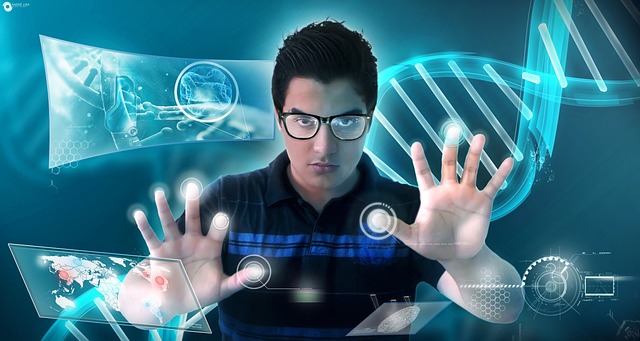# The Impact of AI Technology on Society: Innovations Reshaping How We Live and Work
Artificial Intelligence (AI) has emerged as one of the most transformative forces in modern society, influencing how we live, work, and interact with technology. From healthcare to education, AI is reshaping industries and driving innovation at an unprecedented pace. In this article, we will explore the multifaceted impact of AI on society, highlighting key areas such as automation, data analysis, and personalized experiences.
## Revolutionizing Workplaces
AI technologies are redefining the workplace, enhancing productivity and efficiency. Automation of repetitive tasks allows employees to focus on more strategic initiatives. For instance:
– **Robotic Process Automation (RPA)**: Businesses are adopting RPA to handle mundane tasks such as data entry and invoice processing, freeing up human resources for more complex responsibilities.
– **AI-Powered Analytics**: Companies leverage AI to analyze vast data sets, enabling data-driven decision-making. This capability leads to improved performance and competitiveness.
## Enhancing Daily Life
AI is not just changing the way we work; it’s also transforming our everyday lives. Smart home devices, powered by AI, are becoming commonplace, allowing users to control various aspects of their homes through voice commands or mobile apps. Some examples include:
– **Smart Thermostats**: Devices like the Nest Learning Thermostat learn user preferences and optimize heating and cooling, leading to energy savings.
– **Virtual Assistants**: AI-driven assistants like Amazon’s Alexa and Google Assistant help users manage their schedules, control smart devices, and access information effortlessly.
## AI in Healthcare
The healthcare sector is experiencing a revolution due to AI technologies. From diagnostic tools to personalized treatment plans, AI is enhancing patient care. Key advancements include:
– **Predictive Analytics**: AI algorithms analyze patient data to predict health risks, enabling proactive interventions.
– **Medical Imaging**: AI-powered systems can detect anomalies in medical images with high accuracy, assisting radiologists in diagnosis.
## The Future of Transportation
One of the most exciting areas where AI is making a significant impact is transportation. Innovations in smart manufacturing, predictive maintenance, autonomous vehicles, supply chain optimization, and intelligent user experiences are reshaping the automotive industry.
### Smart Manufacturing
AI-driven smart manufacturing is revolutionizing automotive production. Companies like BMW utilize AI to enhance their manufacturing processes, ensuring efficiency and quality. Key benefits include:
– **Real-Time Monitoring**: AI systems monitor production lines, identifying inefficiencies and predicting equipment failures before they occur.
– **Quality Control**: Machine learning algorithms analyze production data to maintain high-quality standards, reducing defects.
### Predictive Maintenance in Vehicles
Predictive maintenance is another area where AI is making waves. By analyzing data from vehicle sensors, AI can predict when a vehicle is likely to require maintenance, thereby preventing breakdowns. For example:
– **Toyota**: The company employs AI to monitor vehicle performance and alert drivers about potential issues, minimizing downtime and enhancing safety.
### Autonomous Driving Innovations
Autonomous driving is perhaps the most talked-about application of AI in the automotive industry. Companies like Tesla are pioneering this technology, with their vehicles equipped with advanced AI systems that enable self-driving capabilities. Key features include:
– **Adaptive Cruise Control**: Tesla’s Autopilot adjusts speed based on traffic conditions, enhancing safety and convenience.
– **Full Self-Driving (FSD)**: Tesla’s FSD software uses AI to navigate complex environments, making real-time decisions based on sensor data.
### Supply Chain Optimization
AI is also optimizing supply chains in the automotive industry. Real-time data analysis allows companies to respond swiftly to market changes. For instance:
– **BMW**: The company uses AI to predict demand, optimizing inventory levels and reducing costs.
### Intelligent User Experiences
AI is enhancing user experiences in vehicles, making driving more enjoyable and personalized. Features such as:
– **Voice Recognition**: Drivers can control navigation, media, and climate settings through voice commands, minimizing distractions.
– **Personalized Interfaces**: AI analyzes driver behavior to customize dashboard displays and recommendations, creating a tailored driving experience.
## Conclusion: Future Trends in AI and the Automotive Industry
The impact of AI technology on society is profound, and its influence on the automotive industry is just beginning. As we look to the future, we can expect further advancements in autonomous driving, increased integration of AI in manufacturing processes, and enhanced user experiences.
Key trends to watch include:
– **Increased Collaboration**: Companies will likely collaborate more on AI technologies, sharing data and innovations to accelerate development.
– **Sustainability Focus**: AI will play a crucial role in developing eco-friendly vehicles and optimizing resource use in manufacturing.
In conclusion, the integration of AI in the automotive industry is not just about innovation; it is about reshaping how we think about transportation, manufacturing, and user experiences. As these technologies evolve, they will continue to redefine our relationship with mobility and the world around us.











